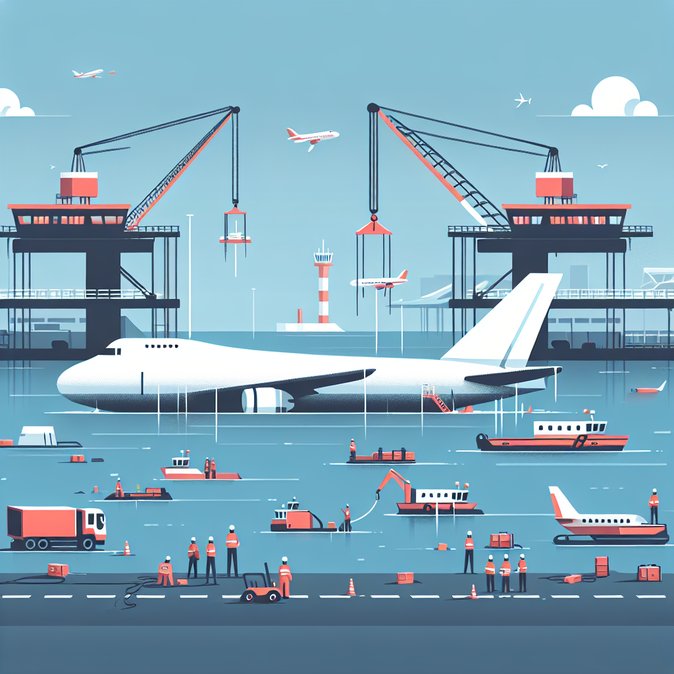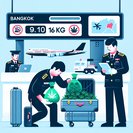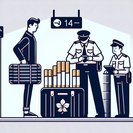
Specialist engineers began the complex task of lifting a split-in-two cargo aircraft from the seabed off Hong Kong International Airport (HKIA) on 24 October, a job experts say will take at least 48 hours and could trigger rolling runway and taxiway closures. The aircraft had veered off the runway two nights earlier, killing two security contractors in an air-side vehicle and plunging into the waters north of Chek Lap Kok island.
Marine architect Louis Szeto told local radio that divers must first confirm whether the fuselage sections remain partially attached before heavy-lift cranes can be positioned. Fuel-tank integrity is another concern: any remaining jet-A leaking into sensitive marine habitat would bring hefty fines and reputational damage to the airline operator and the Airport Authority. Weather windows are tight—northeast monsoon winds are forecast to strengthen on 26 October—so crews are racing to secure the wreckage.
While passenger terminals remain open, HKIA’s slot coordinators have cautioned airlines that wide-body stands adjacent to the recovery zone are temporarily blocked and that ad-hoc freighter movements will be capped. Logistics firms report having re-routed time-critical pharma and electronics shipments via Shenzhen and Macau to protect supply-chain schedules.
The Civil Aviation Department has launched a full probe that could last up to a year. Investigators will examine cockpit-voice and flight-data recorders once the aircraft is ashore, looking at possible factors ranging from cross-wind touch-down techniques to late ATC instructions. Depending on early findings, regulators could issue interim safety directives affecting crew training or runway occupancy times at HKIA and other regional hubs.
For corporate mobility managers, the immediate advice is to build extra buffer into flight itineraries through Hong Kong this week and to monitor freighter capacity if moving household goods or critical spare parts by air. Travel insurers are treating the incident as an "extraordinary event," so change-fee waivers will depend on individual airline policies.
Marine architect Louis Szeto told local radio that divers must first confirm whether the fuselage sections remain partially attached before heavy-lift cranes can be positioned. Fuel-tank integrity is another concern: any remaining jet-A leaking into sensitive marine habitat would bring hefty fines and reputational damage to the airline operator and the Airport Authority. Weather windows are tight—northeast monsoon winds are forecast to strengthen on 26 October—so crews are racing to secure the wreckage.
While passenger terminals remain open, HKIA’s slot coordinators have cautioned airlines that wide-body stands adjacent to the recovery zone are temporarily blocked and that ad-hoc freighter movements will be capped. Logistics firms report having re-routed time-critical pharma and electronics shipments via Shenzhen and Macau to protect supply-chain schedules.
The Civil Aviation Department has launched a full probe that could last up to a year. Investigators will examine cockpit-voice and flight-data recorders once the aircraft is ashore, looking at possible factors ranging from cross-wind touch-down techniques to late ATC instructions. Depending on early findings, regulators could issue interim safety directives affecting crew training or runway occupancy times at HKIA and other regional hubs.
For corporate mobility managers, the immediate advice is to build extra buffer into flight itineraries through Hong Kong this week and to monitor freighter capacity if moving household goods or critical spare parts by air. Travel insurers are treating the incident as an "extraordinary event," so change-fee waivers will depend on individual airline policies.





